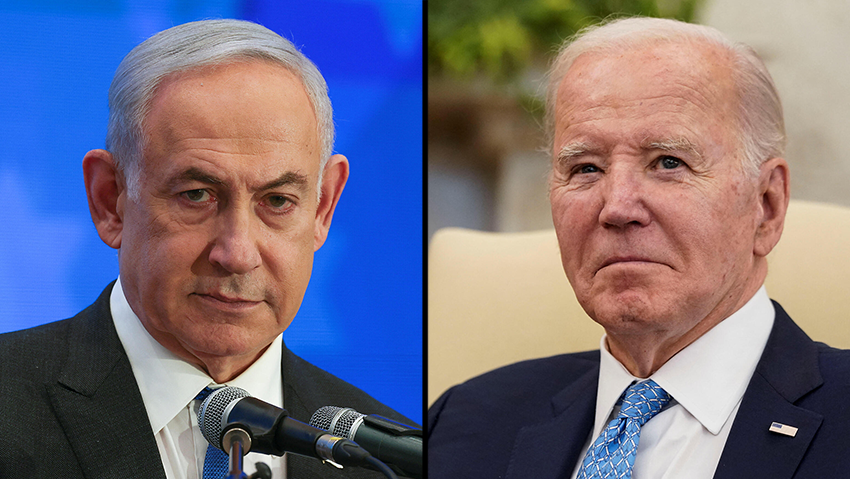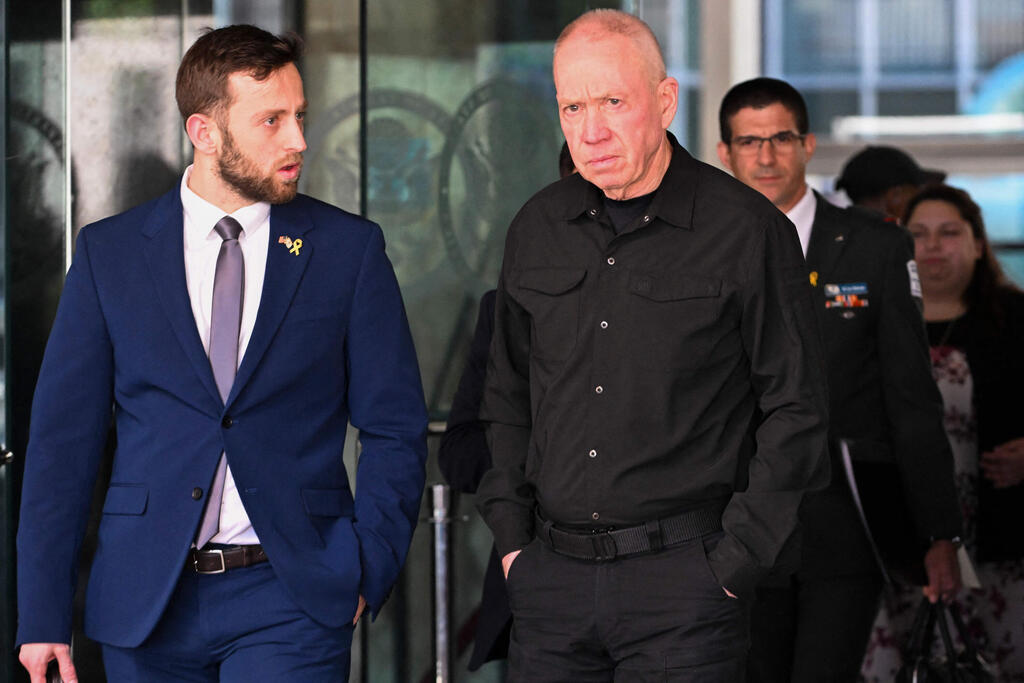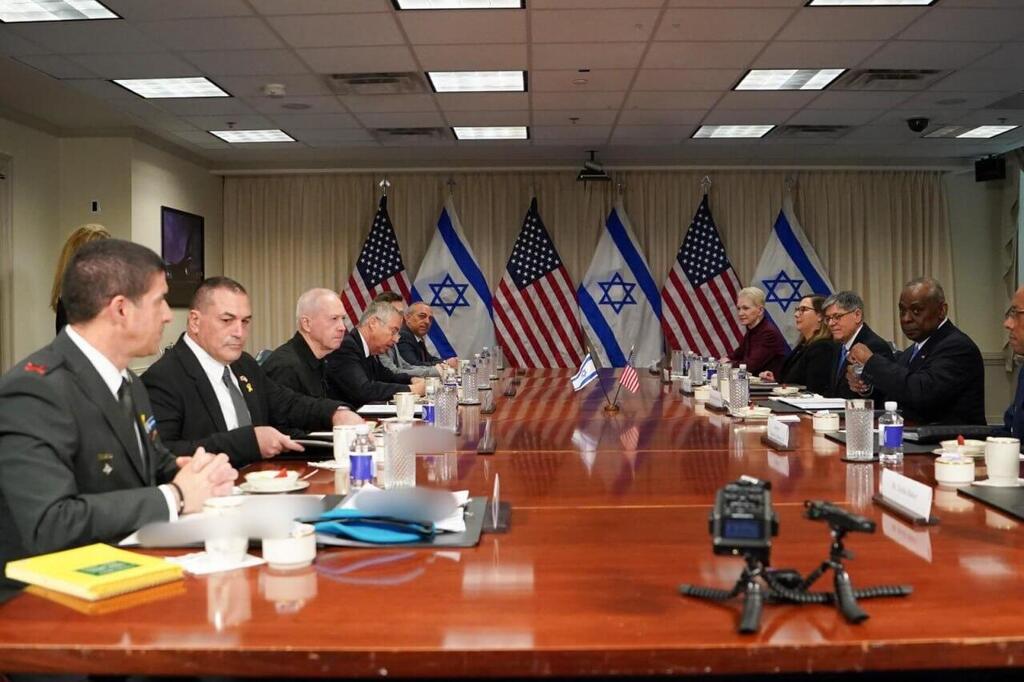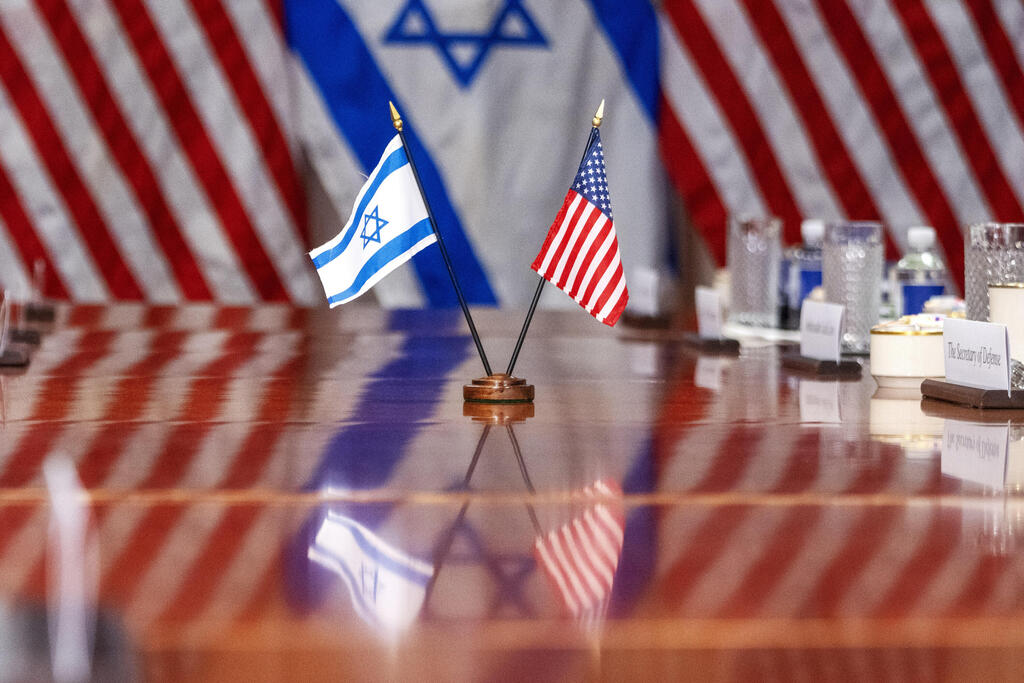Getting your Trinity Audio player ready...
Israeli- American relations appear to be back on track after he Biden administration signaled a note of reassurance with a headline in the Wall Street Journal on Thursday, saying: "U.S. Pushes to Shape Israel's Rafah Operation, Not Stop It". And this, according to reports, reflects the government's position in Washington.
4 View gallery


Netanyahu and Biden not on best terms
(Photo: REUTERS/Ronen Zvulun, REUTERS/Elizabeth Frantz)
But the visit of Defense Minister Yoav Gallant began on a souer note when officials expressed disappointment with Israel's war policy in general and Netanyahu's position on three issues: humanitarian aid; the plan for the "day after," which the Israeli government refuses to disclose if there is such a plan; and the Rafah operation.
Gallant told his hosts that Israel will do its best and is already increasing the quantities of humanitarian aid entering the Strip, even though there is no hunger in Gaza. Gallant assured the Americans that Israel will not let the humanitarian situation escalate to wide spread hunger, including in the northern part of the Strip.
He reiterated that he supports the entry of non-Hamas Palestinians to fill in the expected leadership void in the Strip and that the Fatah movement is currently the only organization that can balance Israel's demands and the demands of the Palestinians. He emphasized that this is his position, but the government has not declared its plan for the day after.
Concerning the IDF operation in Rafah, Galant said that the four remaining Hamas battalions in the Rafah area must be dismantled because otherwise Hamas would continue to pose a threat to Israel. he said that as a son to Holocaust survivors, "Never again" is a working plan and not just a principle.
He asked the U.S. not to put obstacles in Israel's way but to assist it in finishing the war, after having killed approximately 11,000 Hamas terrorists. The last terrorist does not need to be killed, Galant argued, but Hamas, as a terrorist army with almost three divisions of soldiers, needs to cease to exist. However, American officials hinted that there's a linkage between American requests and the 14 billion dollar aid that was promised to Israel at the beginning of the war.
The Americans did not explicitly threaten Israel, but the hints and the "linkage" between humanitarian affairs and military aid to Israel were crystal clear. Gallant, for his part, tried and partially succeeded in restoring trust between the senior members of the Democrat administration, the War Cabinet, and the professional ranks of IDF. However, U.S.-Israel relations will continue on its rough course for now.




